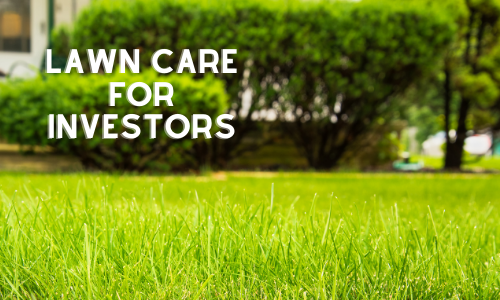Key Takeaways
-
Define Responsibilities in the Lease Agreement – Clearly outline tenant duties for routine lawn care, such as mowing, raking, and snow removal, in the rental agreement to avoid confusion and ensure upkeep.
-
Handle Specialized or Complex Tasks Separately – Landlords should take responsibility for more advanced lawn care (e.g., fertilization, aeration, shrub trimming) by hiring professionals rather than relying on tenants.
-
Set Clear Guidelines for Gardens and Pets – If tenants wish to garden or have pets, landlords should provide specific rules, designated spaces, and restrictions in the lease to protect the property and maintain curb appeal.
When you rent a property with a lawn, who is responsible for mowing the lawn, you or your tenant? What about ventilation, drainage, and fertilization? What do you do when a tenant wants to put something in a vegetable plot or garden? Here are some great tips to help you get started. You can avoid headaches by using these 5 important tips.
1) Put Tenant’s Lawn Maintenance Responsibilities in the Rental Agreement
As an owner, the last thing you need to devote your time to is mowing, tree trimming, and raking your tenants’ lawns. In this case, you must specify exactly in the tenancy agreement which yard maintenance work the renter is responsible for. Ensure that tenants have the tools needed to complete these lawn maintenance tasks in accordance with the lease agreement. As the landlord, you can also ask tenants to rake leaves in the fall and be responsible for clearing snow from driveways and porches in winter.
2) For Specialty Projects Use a Lawn Care Company
It is one thing to ask the tenant to mow the lawn and rake the leaves. It’s another matter to ask them to spend the weekend aerating and cutting down tree limbs with powered lawn equipment. If, as the landlord, you want to perform special tasks such as fertilizing your lawn, aerating, cutting trees, seeding your lawn, hire a lawn maintenance team.
Your tenants possibly don’t have the time, money, or willingness to do it themselves, so you might as well make sure they can keep their living space in a livable condition. Invest in a high-quality property management system that not only will allow for more streamlined and efficient communication with your tenants but will also give them the ability to submit maintenance requests from their phone or computer.
3) If You’re Taking on Lawn Maintenance Yourself, Minimize Greenery
It can be tough to handle yard care, especially when there’s lots of grass. It’s often best to cut down on how much grass you have, so it’ll be easier for landlords to handle lawn maintenance. Native plants, topography, weed control fabric, ground cover, cobblestones, and even artificial turf can greatly facilitate the maintenance of landscaping and lawns in rental properties.
4) Set Guidelines for Tenants Who Want to Garden
Many renters who move into single-family houses with adjacent lawns want to arrange vegetable or flower gardens. Gardening tenants can greatly improve the attractiveness of a rented property, especially if they insert perennial plants, trees, and shrubs. However, the expectations for lawn care and requirements for residents who want to build a garden should be clarified.
Check which invasive plants do not allow tenants to plant on the rented property and include them in the lease agreement. When deciding whether to allow renters to place permanent plants and landscaping, consider any HOA rules or local laws that govern your property and give tenants clear guidelines – again set out in the tenancy agreement – about where and how to plant them.
5) Set Aside a Section of Lawn for Tenants’ Pet Needs
As the landlord, you can always prevent dogs from damaging the lawn of your rental property by prohibiting pets. Nevertheless, pet owners also need a place to live. If you decide to rent to a tenant who owns a pet, please leave a specific area outside for pets. This is much easier than asking tenants to flush the lawn every time the dog urinates outside. Although you should ask tenants to pick up after their animals and charge a fee for renters that do not comply.
Conclusion
When you are a property owner, you don’t have time to personally provide lawn care services. But you need to keep these lawns well maintained to attract future tenants. Make sure your tenants are well-aware of their yard maintenance responsibilities. Ensure that you have clear expectations and guidelines for them to follow, as this will help both you and your tenants be able to enjoy the outdoor space of your rental property.
For a more hands-off approach, consider the benefits of working with a property management company. If you would like to grow your portfolio and purchase more properties, talk to one of our property management experts to learn how Propertycare can help you maximize your efforts. CALL NOW! (713) 489-7653

